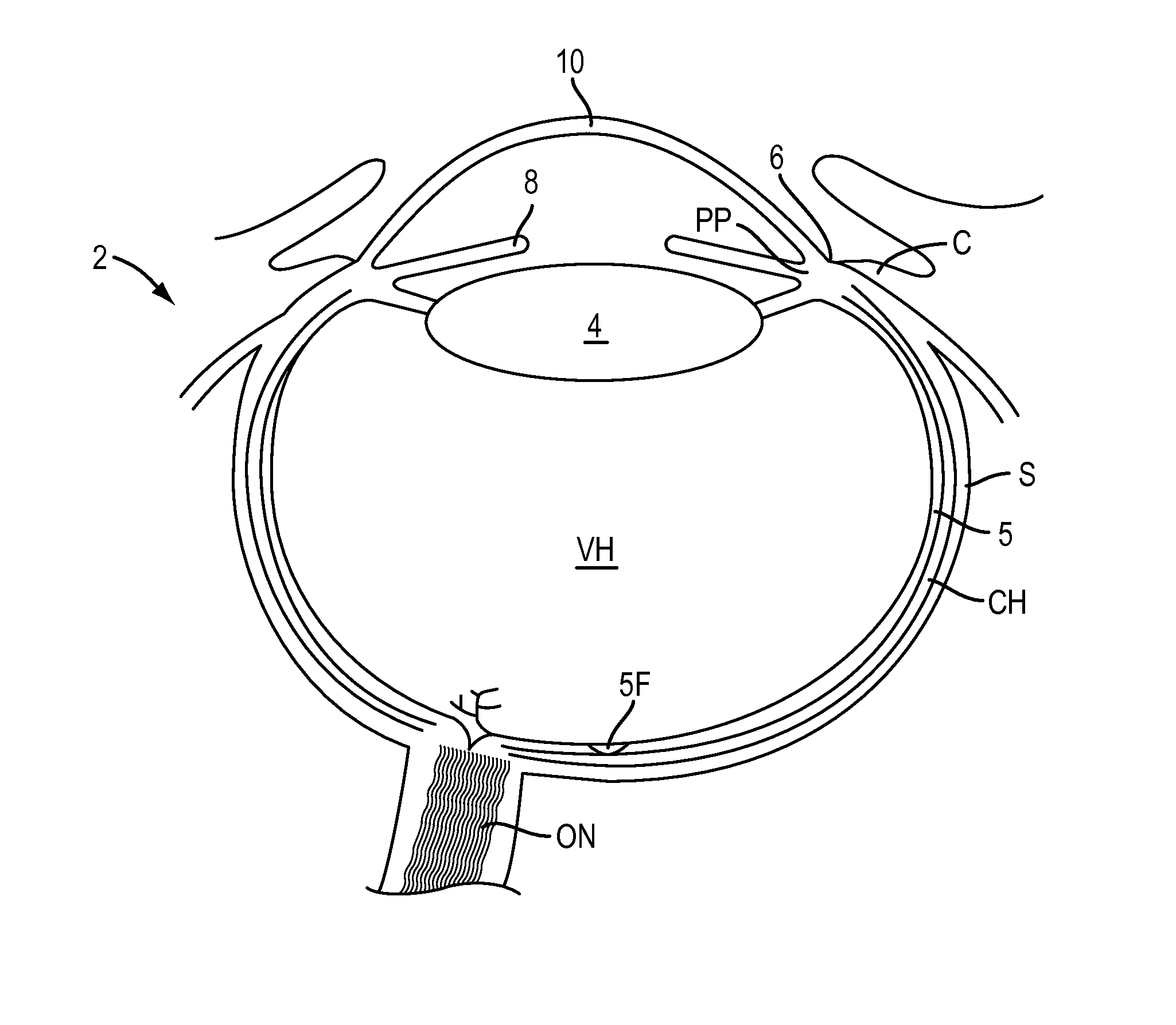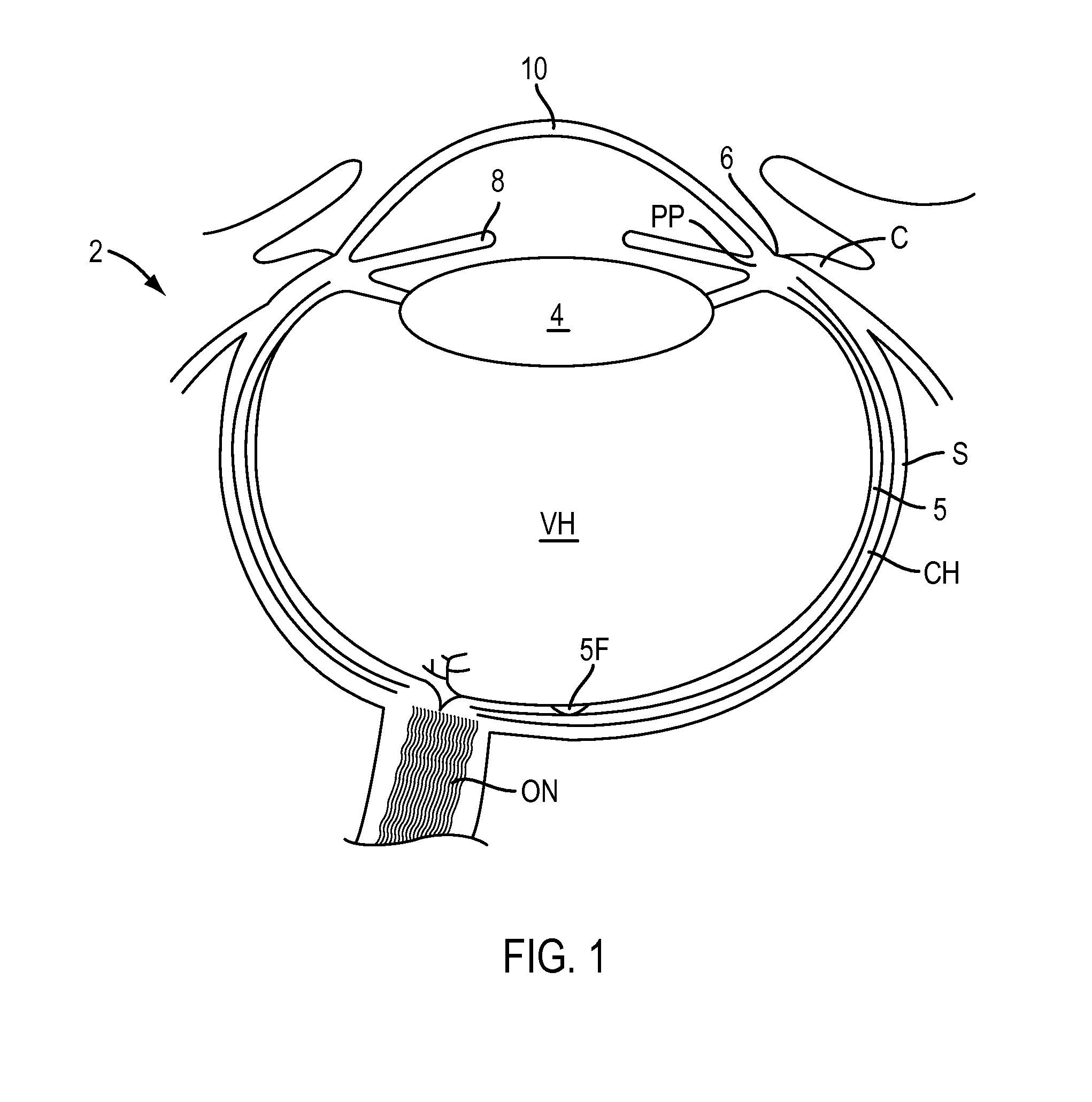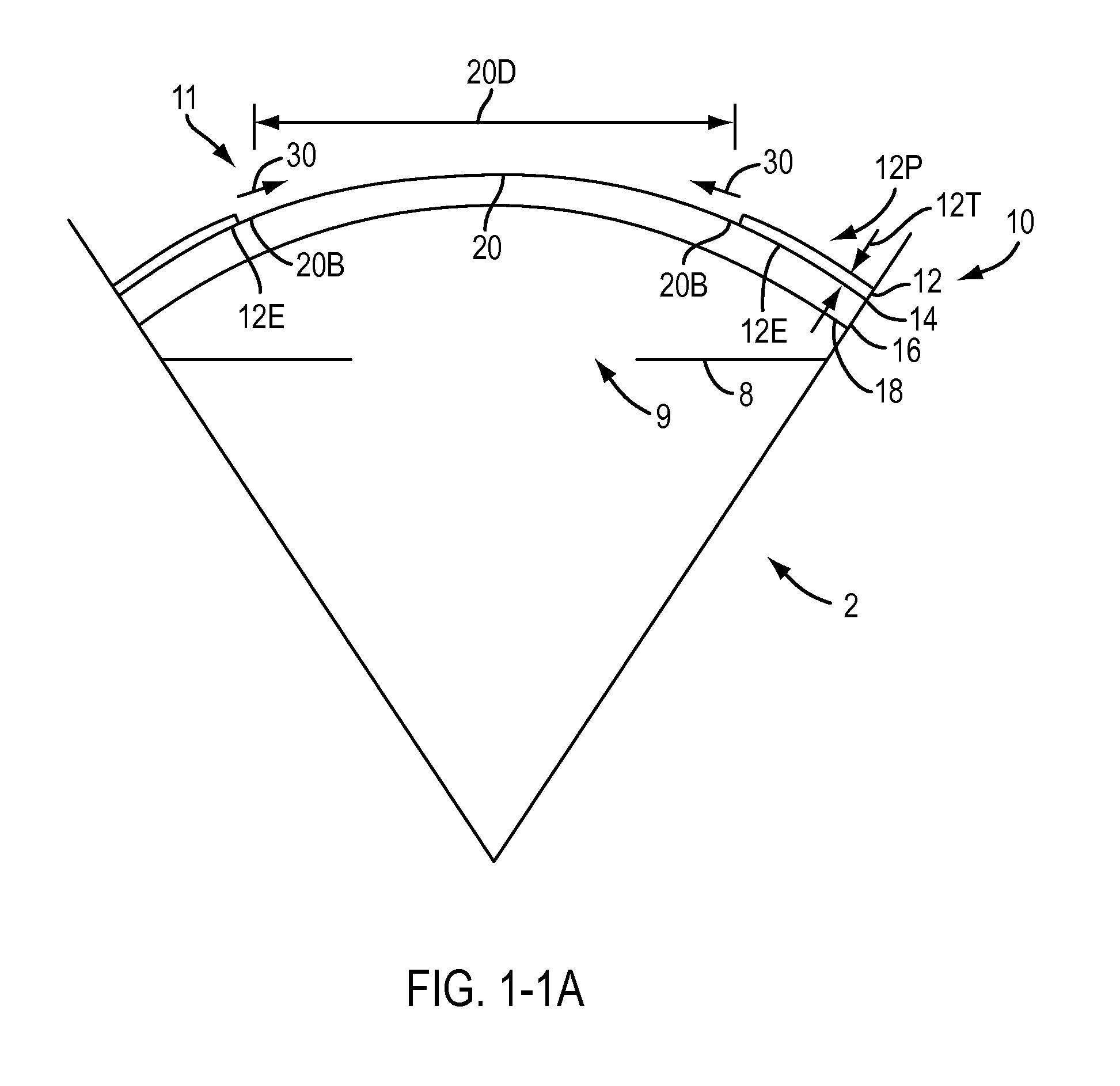Eye covering and refractive correction methods and apparatus having improved tear flow, comfort, and/or applicability
a technology which is applied in the field of eye covering and refractive correction methods and apparatuses having improved comfort, applicability, and tear flow, and can solve the problems of time-consuming and awkward lens fitting, patient vision can be less than ideal, and such lenses can be left in the eye for a long time. , to achieve the effect of improving vision, improving tear flow, and correcting vision
- Summary
- Abstract
- Description
- Claims
- Application Information
AI Technical Summary
Benefits of technology
Problems solved by technology
Method used
Image
Examples
example 1
[0280]A subject requiring an optical correction of −2.63 Diopters (OD) and −2.13 Diopters (OS) characteristic for a subject having myopia wore ophthalmic lenses on both eyes for (very roughly) about 40 hours. The inner and peripheral radii of curvature for the ophthalmic devices are provided in Table 1. After about 40 hours, the ophthalmic lenses were removed and the amount of optical correction (Diopters) need to correct vision was determined at various times. The amount of optical correction (Diopters) needed after the ophthalmic lens was removed from the subjects is presented in Table 1.
[0281]
TABLE 1Amount of optical correction (Diopters) needed after wearing an ophthalmic lens.Radii of curvature forAmount ofophthalmic lenscorrectionInnerPeripheralneeded (priorCurveCurveTime following ophthalmic lens removalto shield wear)(degrees)(degrees)5 min2 hr4 hr8 hr24 hr30 hr48 hrSubject−2.6339.543.0−0.63+0.13+0.13NM−0.50−0.75−1.25#1 ODSubject−2.1339.541.5−0.63−0.13NMNM0.000.00−2.38#1 OS*...
example 2
[0282]A subject requiring an optical correction of +0.13 Diopters (OD) and +0.25 Diopters (OS) characteristic for a subject having hyperopia wore ophthalmic lenses on the right eye for (very roughly) about 35 hours, and on the left eye for (very roughly) about 17. The inner and peripheral radii of curvature for the ophthalmic devices are provided in Table 2. After about the specified number of hours, the ophthalmic lenses were removed and the amount of optical correction (Diopters) need to correct vision was determined at various times. The amount of optical correction (Diopters) needed after the ophthalmic lens was removed from the subjects is presented in Table 2.
[0283]
TABLE 2Amount of optical correction (Diopters) needed after wearing an ophthalmic lens.Radii of curvature forAmount ofophthalmic lenscorrectionInnerPeripheralneeded (priorCurveCurveTime following ophthalmic lens removalto shield wear)(degrees)(degrees)5 min2 hr4 hr8 hr24 hr30 hr48 hrSubject+0.1339.543.0−2.38−3.13−3....
PUM
 Login to View More
Login to View More Abstract
Description
Claims
Application Information
 Login to View More
Login to View More - R&D
- Intellectual Property
- Life Sciences
- Materials
- Tech Scout
- Unparalleled Data Quality
- Higher Quality Content
- 60% Fewer Hallucinations
Browse by: Latest US Patents, China's latest patents, Technical Efficacy Thesaurus, Application Domain, Technology Topic, Popular Technical Reports.
© 2025 PatSnap. All rights reserved.Legal|Privacy policy|Modern Slavery Act Transparency Statement|Sitemap|About US| Contact US: help@patsnap.com



